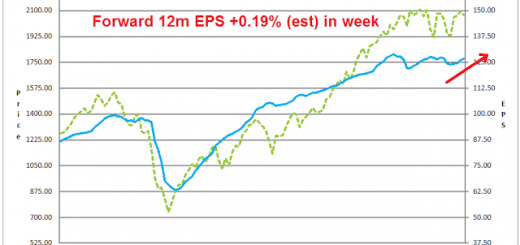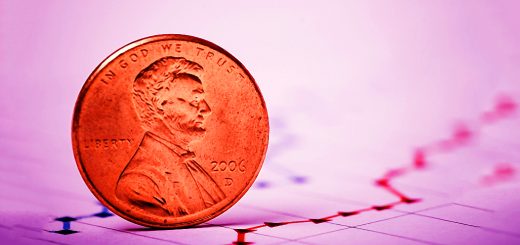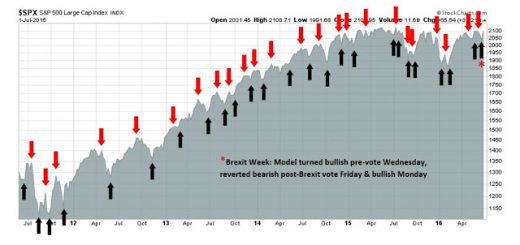Ethical Investing – Part 2

Today’s post is another guest post from Trader Tim. Tim has his own blog here, and you can also find him on Twitter here.
The views expressed in the article below are Tim’s and may not reflect those of Mike or 7 Circles.
If you would like to write a guest post for 7 Circles, please contact Mike via mike@the7circles.uk
Welcome to the second post in the series on ethical investing!
Last time, we explored how to go about selecting stocks to start investing ethically. We highlighted the difficulty of defining what constitutes an ethical investment.
- As a consequence to this, we saw some of the problems with using ethical funds.
The aim of this series is to look at potential stocks, not funds – and analyse why they may or may not be considered good ethical investments.
- The hope is that this will help investors to select stocks based on their own ethical criteria.
Contents
Consumer Defensives
We are going to look at consumer defensive stocks today.
- I’ve wrestled with the best way to structure future posts.
- I’ve come to the conclusion it would be good to look through key sectors and isolate potential ethical investments.
- This ensures some diversification across key sectors
- This is important for any investment portfolio.
The consumer defensives sector includes companies engaged in:
- Food
- Drinks
- Household goods
- Personal products
- Packaging
- Tobacco
Consumer defensive companies are interesting as they cover a broad spectrum of issues.
- Energy companies will obviously have ethical concerns.
- However, these companies will typically be limited to climate change and human rights areas.
Consumer defensives can be involved in:
- animals welfare
- workers’ rights
- human rights
- supply chain concerns
- genetic engineering
- harmful chemicals or toxin problems
A whole host of issues really can be tangled up with consumer product companies.
A special mention to the Ethical Consumer website, which I have relied on heavily for today’s post.
- The website scores products, but also companies, based on their ethical commitments.
- It incorporates both negative and positive screening issues.
Let’s look at some companies and ethical issues.
Tobacco
The consumer defensive sector includes tobacco companies, which would obviously raise some ethical concerns for most investors.
- We will follow the suit and employ a negative screener
- Therefore, tobacco companies like British American Tobacco and Imperial Brands will not be considered
- Tobacco is a niche industry and isolated enough that it does not cause major diversification problems.
Unilever
I will not go heavily into detail of the financials as this is not the main purpose of the post. However, while this may be ethical investing, we still need to ensure that the investments we’re considering are financially solid. You should do you own research on this.
However, Unilever presents a good investment opportunity in the financial sense.
- 5% from historic highs in the share price
- Growth in Earnings Per Share the last 4 years
- Dividend growth per share every year for the last 6 years
- Healthy 14.3% operating margin
- Strong return on equity and capital
Again, please do your own research on the financials. My main aim here is to cover the ethical considerations, so I have rattled through the numbers.
Now, let’s look at the ethical considerations.
Supply Chain
- The company’s workers’ rights provisions which adequately addressed employment free from discrimination, forced labour, child labour and trade unions (Unilever Responsible Sourcing policy 2014)
- However, the same policy does not enforce a maximum number of working hours per week or provide workers’ a living wage
- The company released “Unilever Human Rights Report 2015”
- The policy aimed “define fair wages and analyse our compensation models across 180 countries”
- The country is clearly reviewing this policy
- However, to date, no changes have been publicised
Workers’ Rights
- Unilever scored poorly for cocoa production according to the Ethical Consumer
- The majority of the cocoa sourced in the company not being certified
- Certification is important due to the inherent problems with child labour being used in Western Africa
- A BBC investigation in September 2015 found dangerous and degrading living and working conditions on tea plantations
- In a report produced by Oxfam, Unilever was given a 5/10 for the category “Women”
- The report said that the company “needed to better understand where women were most vulnerable in its supply chain and move its suppliers to make concrete changes” (Oxfam International:Behind the Brands)
Animal Testing
- This is area where Unilever comes under most scrutiny from ethical campaigners
- Unilever was on a list of companies that had not eliminated tests on animals for their entire line of cosmetics and household products (PETA)
- There are numerous examples listed about Unilever’s animal testing history
- The most damning of with came from BUAV in 2013 that suggested that the company’s testing policy was at time “cruel and unnecessary”
- The company received Ethical Consumer’s worst rating for animal testing
- It has said it will stop animal testing practices, however, no date is given for this
Environment
- Palm oil is Unilever’s main exposure to environmental concerns
- The use of palm oil has led to large deforestation in Indonesia, Malaysia and other countries
- From 2012, the company has 100% sourcing of palm oil, including derivatives, are from sustainable sources
- Unlike some companies, Unilever is considered to have a positive policy on palm oil sourcing
This hopefully points out some of the issues to you. Large companies, particularly in the consumer defensives sectors, span a whole wealth of ethical issues. I have only covered some that I think are the most mainstream.
Personally, Unilever wouldn’t appeal to me as an ethical investor. However, it may appeal to some.
- It’s actively promoting a positive policy on palm oils.
- They are ahead of many companies on this.
As an investor, if your main concerns lie with the environment, you wish to protect the planet and divest from fossil fuels. Unilever may be an investment for you.
Other investors may not agree with this.
- Those that place importance on animal testing, in particular, would want to look elsewhere.
- Those concerned about people – labour and workers’ right – may need to analyse this closer
- Unilever has a few problems around workers’ right that need addressing
With such large companies, it will be almost impossible to find a company performs ethically across the board.
Britvic
A slightly lesser known company now. However, not tiny by any stretch. The company boasts a market capitalisation of £1.65 billion. Again, I will rattle through the financials here – do your own research on this. It may be a potential investment opportunity for the follow reasons:
- Trading at a P/E of 12.9 – pretty cheap for this sector
- Growth in Earnings Per Share the last 3 years
- Dividend growth per share every year for the last 3 years
- Healthy 12.2% operating margin
- Increase operating margin year-on-year for the last 5 years
- Strong return on equity and capital
Now, let’s look at the ethical issues. Ethical consumer didn’t really dig up much on Britvic. The company scans reports, articles and documents about company’s ethical policies.
- For Britvic, it only had a couple
- This is generally a good sign as most the reports tend to have a negative focus
- No news is good news in this case
- The company scores an impressive Ethiscore of 13.5 out of 20 on the Ethical Consumer website
- This is very good for a listed company of this size.
- In comparison, Unilever scored a 3.5
The Britvic website shows the company puts ethical issues high on their radar.
- They have a “Sustainable Business” tab in the primary navigation on the homepage of the website.
- There for all to see
- Not hidden away in the archives like many company websites
- In this tab, you can drill down in all the key ethical issues that the company is involved with.
Let’s delve into the ethical considerations now.
Supply Chain
- The company uses recognised standards such as systems such as Sedex and CIPS Sustainability Index to get greater visibility on sourcing
- However, Ethical Consumer suggests that the uses of these systems in not satisfactory
- This would be one area of improvement
Workers’ Rights
- The company’s 2014 Sustainable Business Report showed a commitment to equality and diversity within its workforce.
- It has satisfactory provisions for child labour, forced labour and freedom of association.
- Like Unilever, there is no commitment to paying a living wage or a maximum working week of 48 hours with 12 hours overtime
Animal Testing
- No registered issues
Environment
- The company scores well for its progressive environmental policy
- The company has a target that “by 2020 reach a water intensity ratio of 1.4 within our manufacturing sites, meaning for every litre of soft drink produced, use 1.4 litres of water”
- It also has committed to a “20% reduction target in direct Greenhouse Gas emissions ratio by 2020 from a 2012 baseline”
- The company received Ethical Consumer’s best rating for its environmental reporting
- Targets, commitments or deadlines are generally a good sign that company are taking ethical considerations seriously
- Often companies will take non-committal approach to these issues
- A target provides public and private visibility of success
Britvic scores better using Ethical Consumer’s Ethiscore metric. It is helped by the fact that it’s business is smaller and much tighter in its remit.
Unilever deals in everything from personal care to tea bags, ice cream to stock cubes. This brings with an insurmountable amount of issues.
Britvic does have some ethical concerns:
- it also markets and sells high-caffeine energy drinks, which may be considered unethical by some.
- However, on the whole, the company’s people policies are good and the company has a strong record on environmental issues.
- It scores a pretty strong 13.5 out 20 on the Ethical Consumer website
- Personally, Britvic is a company that I’d be willing to invest in.
Final thoughts
Hopefully, this has been useful. The aim is to give a glimpse into a couple of stocks in the consumer defensive sectors and run through the ethical issues.
- Something you’ll see as we run through other sectors, any ethical portfolio will tend to skew toward smaller stocks.
- Not necessarily small cap, but it probably won’t have many FTSE 100 residents.
As we’ve seen with Unilever, it’s difficult for companies of this size to keep a lid on all the ethical issues as their business expands.


